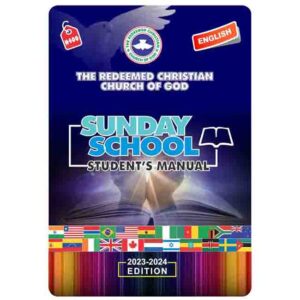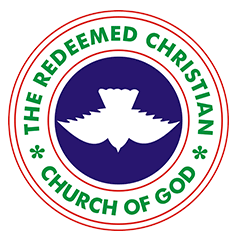RCCG Sunday School Student manual 9 June 2024 for the adult class.
Today’s Lesson 41 topic is CULTURAL CHRISTIANITY.
Also Read:
- RCCG Sunday School Teachers Manual 9 June 2024
- Open Heaven 9 June 2024 Devotional
- RCCG YAYA Sunday School 9 June 2024 Manual
- RCCG House Fellowship Manual 9 June 2024
Note: Check RCCG SUNDAY SCHOOL HYMN LYRICS

RCCG SUNDAY SCHOOL STUDENT MANUAL 9 JUNE 2024 (LESSON 41)
TOPIC: CULTURAL CHRISTIANITY
BIBLE PASSAGE: Matthew 7:21-23.
MEMORY VERSE:
And when he had found him, he brought him unto Antioch. And it came to pass, that a whole year they assembled themselves with the church, and taught much people. And the disciples were called Christians first in Antioch. Acts 11:26.
INTRODUCTION
The Christian faith is the experience or dally living in a dynamic and new personal relationship with God (Romans 10:9-10; John 1:11-13).
The very term “Christian” was coined in the city of Antioch as a way to identify the first followers of Christ (Acts 11:26). The first disciples were so much like Jesus that they were called little Christs by their detractors.
It is unfortunate that nowadays, some people have made Christianity represent an ideology or a social class rather than a lifestyle of obedience to God.
Today, there are two shades of Christianity: Cultural Christianity and Biblical Christianity.
OUTLINES:
- Cultural Christianity Described
- Identification Marks
1. CULTURAL CHRISTIANITY DESCRIBED
Cultural Christians are nominal believers who superficially identify themselves as “Christians” but do not truly adhere to the tenets of the Christian faith (Matthew 15:8).
They wear the label “Christian” without personal conviction that Jesus is Lord (2 Timothy 3:5).
Cultural Christianity is more social than spiritual (1 Corinthians 2:14-15).
A cultural Christian identifies with certain aspects of Christianity, such as the good works of Jesus (John 6:26-27), but rejects the spiritual aspects required to be a biblically defined Christian (Romans 8:5).
Some people consider themselves Christians because of family background, charity giving, place of residence, Christian name or title, churchgoing or social environment.
Others identify as Christians as a way of declaring a religious affiliation. vii. Cultural Christianity is not true Christianity. There was no such thing as cultural Christianity in the days of the early church.
CLASS ACTIVITY 1:
Students should differentiate between true Christians and cultural Christians.
2. IDENTIFICATION MARKS
The following are some identifying marks of cultural Christians:
- They deny the inspiration of Scripture or parts of Scripture (2 Timothy 3:16; 2 Peter 1:21).
- They ignore or downplay true repentance as the first step toward knowing God (Matthew 4:17; Acts 2:38).
- They focus on Jesus’ love and acceptance to the exclusion of His teaching on hell, obedience, and self-sacrifice (Mark 9:43; Luke 12:5).
- They tolerate or even celebrate ongoing sin while claiming to know God (1 Corinthians 5:1-2).
- They redefine scriptural truths to accommodate culture (Numbers 23:19).
- Claiming God’s promises while ignoring the requirements included with them (Psalm 50:16).
- They deny or minimise Jesus’ claim that He is the only way to God (John 14:6).
- They perform enough religious activity to gain a sense of well-being without a true devotion to Jesus (Romans 8:9).
- They see protection and blessing as goals to be achieved, rather than by-products of a love relationship with God (Mark 12:30).
- They are lukewarm and choose the church to attend based on any or all of the above (Revelation 3:15-17).
CLASS ACTIVITY 2:
Mention what true Christians can do to help cultural Christians.
CONCLUSION: RCCG Sunday School Student Manual 9 June 2024
Jesus’ warning in Matthew 7:21-23 should be a wake-up call to cultural Christians.
QUESTION
- Describe cultural Christians in two sentences.
- Mention four ways to identify a cultural Christian.
ASSIGNMENT
Write five differences between a true Christian and a cultural Christian. (2×5=10 marks).
Follow RCCG Live on:




